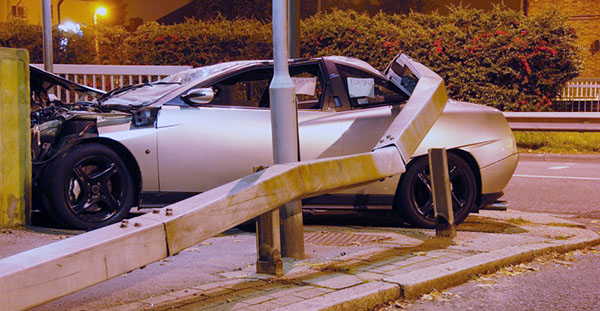By Carla Hindman
Director of Financial Education, Visa Canada
Each year, auto insurance companies declare a great number of vehicles to be “totalled”, meaning it’s not worth the cost to repair them. It doesn’t matter whether the car was damaged in a collision, during a flood or after a thief’s joyride went wrong.
It’s hard to argue with such an assessment if your car was wrapped around a telephone pole or the gas tank exploded. But what if the damage was more cosmetic, such as major dents on the roof and hood from a hailstorm?
A vehicle is considered a total loss if the insurance company determines that the total cost to repair your car to pre-accident condition, plus fees for storage, salvage and a replacement rental car (if included in your policy), is more than a certain percentage of the car’s retail value. Insurers set their own allowable percentage, (typically around 70 to 80 per cent) and use their own formulas to determine a car’s value and estimated repair costs.
Thus, if your $4,500-valued 2002 Honda Civic sustains $2,750 worth of damage – moderate bodywork and repainting these days – it might be deemed totaled because of additional costs like a rental car, even though the engine still runs fine. On the other hand, a late-model Mercedes could sustain far greater damage and still be considered salvageable.
And depending on your insurance premium, you’ll receive the $4,500 minus the deductible. As you are responsible for your deductible in the event of an accident, you’ll want to choose an amount you can afford when negotiating rates.
Another issue when a car is totalled is whether you are still paying off your auto loan. Since the lender technically owns the car, they’ll get first crack at any insurance payment; and you’ll still be responsible for paying off the remaining loan balance.
As a preventative measure, you may want to purchase gap insurance if you owe more than the car’s retail value – or if you rolled past debt into the new car loan. It will pay the outstanding loan balance if your car is totalled or stolen. Most insurers will let you add gap insurance at any time.
Here are a few additional points you should know about when and why a car is declared totalled, and precautions you can take ahead of time to lessen the impact:
- Make sure the insurance appraisal includes the value of all extra features and aftermarket accessories, like heated seats, custom wheels or an upgraded audio system.
- Be prepared to show documentation of any major repairs or upgrades you made that might boost the car’s value – say you recently replaced the engine or bought new tires.
- Do your own research. Use independent pricing sites to determine your car’s worth, factoring in its mileage, added features and overall condition before the accident.
- If your estimate is far off from the proposed settlement, ask whether your policy includes the right to hire your own appraiser for a second opinion. Understand, however, that no matter the arbitration outcome, you’ll still have to pay your appraiser, and likely, a portion of arbitration costs.
- Ask if the insurer’s totalled car value can include estimated sales tax to replace the car, as well as registration, since you wouldn’t have incurred these costs if you didn’t need to replace the car.
Let’s hope your car is never totalled, but it pays to know in advance what to do if it is.
Carla Hindman directs the Practical Money Skills program for Visa Canada. More budgeting and personal finance tips can be found at www.practicalmoneyskills.ca. As always, consult a financial professional regarding your particular situation.
 Pride News Canada's Leader In African Canadian & Caribbean News, Views & Lifestyle
Pride News Canada's Leader In African Canadian & Caribbean News, Views & Lifestyle





